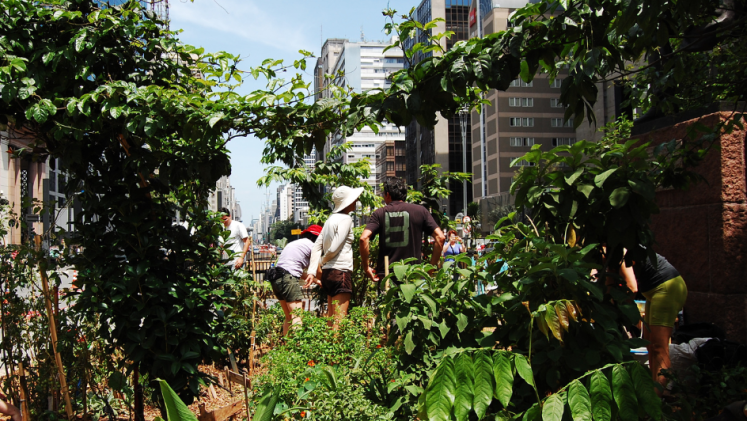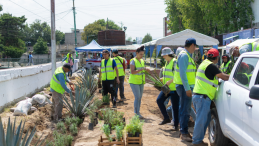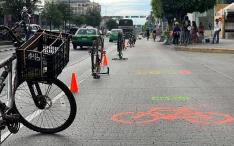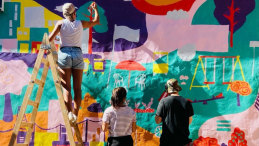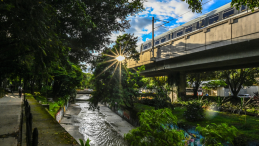Press briefing: Local solutions, global impact: Trends in local community climate action
When: Monday, 17 November 2025, 10:30 a.m. (BST), (14:30 CET)
Where: Press Conference 1, Area D. Join virtually via the COP 30 Virtual Platform.
Available assets upon request: Media Advisory in Spanish and Portuguese, Press release, images.
Who:
- Dr. Simone Sandholz, Senior Scientist, United Nations University Institute for Environment and Human Security (UNU-EHS)
- Dr. Elkin Velásquez, Regional Director – Latin America and the Caribbean, UN-Habitat
- Samia Nascimento Sulaiman, General Coordinator for Outreach and Partnerships, Department of Risk Mitigation and Prevention, National Secretariat of Peripheries (SNP), Ministry of Cities of Brazil
- Dulari Parmar, Project Lead-Climate Justice, Youth for Unity and Voluntary Action (YUVA)
Why:
As the climate crisis is intensifying and global commitments are not yet sufficient to reduce emissions to the necessary levels, cities and local urban communities are stepping up to fill gaps and build momentum. The COP 30 Local Leaders Forum was a strong indication that a just transition and Global Mutirão are not just talking points, as local leaders from 14,000 cities, towns, regions and provinces pledged to ensure 2,500 local projects for climate mitigation and adaptation.
Cities and urban communities around the world are carrying out innovative work that is not always widely seen, but that is keeping climate momentum moving forward. Sub-national and bottom-up approaches are already a growing trend around the world.
In Latin America, the Transformative Urban Coalitions project led by the United Nations University Institute for Environment and Human Security (UNU-EHS) has been working with local communities in Argentina, Brazil and Mexico to test locally-led solutions in underserved and vulnerable communities for over 4 years. Using “Urban Labs”, they are bringing together new coalitions of actors to achieve small-scale projects that can be modelled and replicated elsewhere.
In India, youth and residents of informal settlements are taking resilience into their own hands. There, Youth for Unity and Voluntary Action (YUVA) is teaching them the technical skills to map climate hazards, mitigate risks and guide them in the development of their own localized climate change adaptation plans.
National governments have a model example from the Ministry of Cities of Brazil on how to provide support. With their novel Secretariat for Peripheries (SNP), the Ministry is not only engaging in favela-upgrading, but is taking a more holistic approach working hand-in-hand with local communities and integrating climate action and disaster risk reduction measures.
Indeed, national climate plans are starting to confirm the growing importance of local climate action. According to UN-Habitat's latest analysis on urban content of the NDCs, the number of strong urban references has doubled from the second to third NDC cycle. The key is now turning those plans into action.
As COP 30 deliberates, transformational changes will be happening on the ground in places far away from Belém in real time. The spotlight on local action should not shine away once the final gavel is struck.
Please find the Media Advisory in Spanish and Portuguese here.
For more information or to arrange an interview, please contact:
Media hotline: + 49 151 2672 1390 (mobile calls, text messages, WhatsApp) or press@ehs.unu.edu
Nadine Hoffmann, Head of Communication, n.hoffmann@vie.unu.edu
Arianna Flores Corral, Communication Analyst, flores-corral@vie.unu.edu

